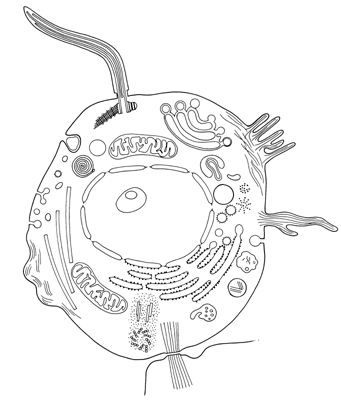Possibilian
Possibilans are those that celebrate the vastness of our ignorance, are unwilling to commit to any particular made-up story, and take pleasure in entertaining multiple hypotheses.
There’s a space opening up in the wake of people smelling something fishy with total atheism, and folks like David Eagleman are being put forward to fill the gap.
Eagleman’s idea is that there are things we don’t know about yet, and telling interesting stories in the remaining gaps is a good thing to do.
This idea is both positive and confusing. It involves creativity in abstract thought, experimentation in human narrative, all good things.
But the stories about the afterlife are not possibilities. They are things you could take to be certain, they are ideas you could live by. That is why stories that are not particularly well written can have such power – because you feel how your life might be different if you believed them.
There is no scientific discovery that could validate a Sum hypothesis. We have already made the discovery when we discovered the human brain.
But at the same time, you can’t look faith in the eye. So approaching it from this slanty way is perhaps not too bad.
Just don’t pretend that faith narratives are uncertain. They wouldn’t do anything if they were. And don’t pretend that if you really want to tell your life in a huge meaningful narrative you can keep up the attitude that keeps everything in the air.
What Sum brings out is exactly what the total atheist version of life after death amounts to. To say nothing is not the heights of rationalism, but is really just a boring, depressing, meaningless story.
The enemies
Maybe it’ll give you a better idea if I set out my enemies. They’re obviously not personal enemies, they’re just doing things wrong.
Now the basic idea is that reductive investigation mangles narrative, so where science touches language-in-use-by-humans (thats what I’m using the word narrative for) it creates confusion.
This happens in the following areas:
Human evolution. From the beginning of complex cultural human life, the best explanation for what we now do (and why our ancestors did what they did) is found in a description of the interconnected lives and thoughts and words and deeds of the human race. Looking at the genetic starting point and adding to it the rules of thumb for growth and behaviour, and the history of our biology and genes doesn’t even get close. It is a human story, and can only be understood as such. If you like you can look at it like this – what are the rules governing the transmission of memes? We obviously make them up as we go along. They change all the time. We decide every day the ideas that carry on. So scientific investigation into religion, culture and society are baddies. This obviously doesn’t exclude finding out what people think and do, because thats not reductive investigation, it’s an art.
Human behaviour. What people do, they do because of what matters to them, what they think is right, what their culture thinks is right, how they’ve learned to behave, what they believe and so on. It cannot be understood by only explaining what the neuroscience of the brain is doing. The whole, “it is discovered that x experience actually changes your brain” headline drives me up the wall. Of course every millisecond of human life has a different brain state. You can’t step in the same brain twice, perhaps. So in the medicalisation of emotion, the deconstruction of responsibility and free will, in the attack on personal faith and an insistence on rationality in emotional matters, science is the baddy.
Human experience. Whether we like it or not, everyone has something it’s like to be them. The fact of consciousness, or subjectivity, or experience – whatever you want to call it – is so interwoven with language as to be inseparable. Wherever science touches it, it goes wrong. There is nothing else interesting about consciousness except this here now. It makes you sound like a hippy, but its the only definition. So when scientists say consciousness is still a mystery, they are talking dangerous rubbish. How can you not be aware of the fact of awareness? But talking about consciousness makes me dizzy, so I’ll stay away from it to start with.
So there they are. I know, its a fairly big baddy. But you’ve got to try.
What’s science ever done to you?
 Well I guess I’d better start trying to explain myself.
Well I guess I’d better start trying to explain myself.
It’s not that science is bad, far from it. Scientific investigation has conquered many forms of death, explained the world and the universe and almost everything in it, and has given us powers unimaginable to our ancestors.
But scientists’ success has gone to their head. They have forgotten that there are some things that cannot be explained. And I’m not talking about anything mystical or supernatural here.
You see, science can’t explain the content of language as it is used by humans. It can’t explain narratives and stories and beliefs. Why? Because the content is not the sort of thing that yields to scientific investigation.
There’s a long long way to go before I get my argument clear, and this blog is how I’m going to try and do it, but perhaps we could start with a basic picture. This isn’t theory, by the way, its just abstract talk, so don’t be offended that I mangle things completely.
So science works by looking at something and, roughly speaking, explaining how simple parts of it work in conjunction. You explain how a cell works by knowing how mitochondria and membrane and protein and, in the end, different types of atoms, work together. Same for stars and planets and slugs and radio waves and tides.
But not the same for everything. Because language, as it is used by humans to make the stories within which they live, cannot be understood at all by looking at it in that way. Novels can’t be understood by separating out the letters and doing an analysis on the ink. Science can’t predict the end of a story.
This is a huge leap, and I’m not even going to try and bridge it now.
The reason why I’m going to plug on, is that when you apply scientific investigation to the use of language you go looking for something that doesn’t exist.
 Language doesn’t work because it is somehow supported by laws or physics or neurobiology. Language works because people accept things as certain. In order to investigate a certainty you have to question it, which means that it is not certain anymore.
Language doesn’t work because it is somehow supported by laws or physics or neurobiology. Language works because people accept things as certain. In order to investigate a certainty you have to question it, which means that it is not certain anymore.
This means that scientific investigation undermines the narratives by which our lives get all their meaning. When scientists think they can explain religious belief, or why life is meaningful, or choice, or relationships, or human history, or art, they don’t do something neutral. They do something which either forces the people who want to hold on to meaningful things onto the defensive, or they kill the meaningful thing dead.
We live in language, so we had better persuade science to back off.
Starting out
There is an unnecessary cultural war taking place between science and life. Both sides can happily co-exist if science just accepts that it cannot explain language and narrative-based culture realizes it exists without scientific support. All that is needed, is for everyone to accept that not everything can be explained. Narrative can only be described. And narrative is everywhere.
Obviously we’re a long way from those sentences making any sense at the moment. What, for example, do i mean by narrative? What do i mean by science. Fear not, all will become clear.
I’m not hopeful that this blog will go well, as the subject is by necessity a bit abstract, but if you don’t put your back against the ocean liner of culture, you might as well give in.
I’m not writing this under a pseudonym, i’m just not giving you my name at the moment. I hope that’s ok.
leave a comment